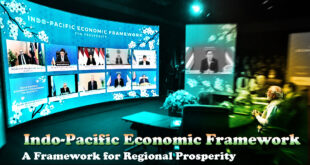India is bombarded with electoral rhetoric that is shorn of care for citizens who inhabit desolate worlds
Every person who aspires to political power ought to read the book, Considerations on Representative Government, by John Stuart Mill. Ideally, democracy is not the best form of government, wrote Mill, unless it ensures that the majority is unable to reduce everyone, but itself, to political insignificance. The book neatly demolishes facile arguments that a majority group has some unspecified right to imprint its will on the body politic. In democracies, the very idea of majority rule is trumped by the grant of fundamental rights. Paramount among these is the right not to be discriminated against on the basis of religion, caste, class, gender and sexual preferences. What group we belong to, what faith we profess and what language we speak is irrelevant. Each citizen is an equal shareholder in the political system.
A momentous transition
The makers of our Constitution were committed to this understanding of democracy. On October 17, 1949, H.V. Kamath moved an amendment in the Constituent Assembly. The Preamble to the Constitution, he suggested, should begin with the phrase “In the name of God”. Similar amendments were moved by Shibban Lal Saxena and Madan Mohan Malaviya. Other members vociferously disagreed. Hriday Nath Kunzru observed that we should not impose our feelings on others: “We invoke the name of God, but I make bold to say that while we do so, we are showing a narrow sectarian spirit, which is contrary to the spirit of the Constitution.” The amendment was defeated. The Constitution obligates the holders of power to respect the principle of religious neutrality. The commitment was significant, because by the mid-1940s religion no longer belonged to the realm of private faith. It had been transformed into a mode of politics that laid claims to power in the public domain. The transition proved momentous for Indian politics. Though prominent leaders assured minorities, time and again, that they would not be discriminated against for any reason, right-wing groups continued to assert that the religious majority had a natural right to rule India. This belief shaped the dark underside of collective political imaginations. Still these ideas were contained, at least till recently, by the intent and the framework of the Constitution.Leaders should take inspiration from French President Emmanuel Macron. Along with German Chancellor Angela Merkel, he courageously took on some of the most populist of Europe’s leaders, at a function to mark a century since the end of World War I. He affirmed an axiom that had already been articulated by Rabindranath Tagore: “Patriotism is the opposite of nationalism.” In the audience were U.S. and Russian Presidents Donald Trump and Vladimir Putin, respectively, two leaders who have adopted muscular nationalism as their political credo. Mr. Macron urged leaders not to forget the slaughter “one hundred years after a massacre whose scars are still visible on the face of the world”. There is a lesson to be learnt from this advice. In India, we are bombarded with electoral rhetoric that is shorn of care, compassion for, or commitment to citizens who live in frighteningly desolate worlds. These worlds are inhabited by impoverished farmers, insecure workers in the informal sector who lost their jobs after demonetisation and the imposition of GST, minorities who are increasingly rendered irrelevant, the so-called lower castes who are deprived of security, and women who are subjected to hateful stereotypes. Elections give citizens an opportunity to discuss policies and proposed political agendas, and exercise free choice. The forthcoming election breeds pessimism at the lack of choices.
Source : https://www.thehindu.com/todays-paper/tp-opinion/tyranny-of-the-majority/article25706591.ece
Check Also
The Prevention of Sexual Harassment (PoSH) Act
Introduction The Prevention of Sexual Harassment (PoSH) Act, 2013, is a landmark legislation in India …
 Chinmaya IAS Academy – Current Affairs Chinmaya IAS Academy – Current Affairs
Chinmaya IAS Academy – Current Affairs Chinmaya IAS Academy – Current Affairs



